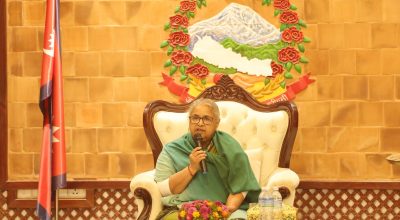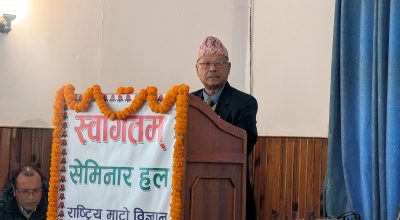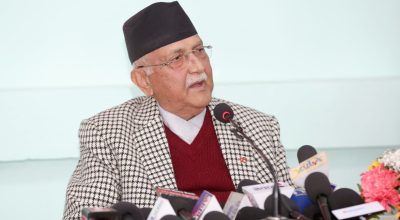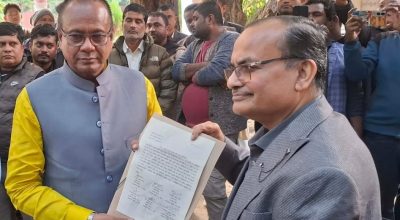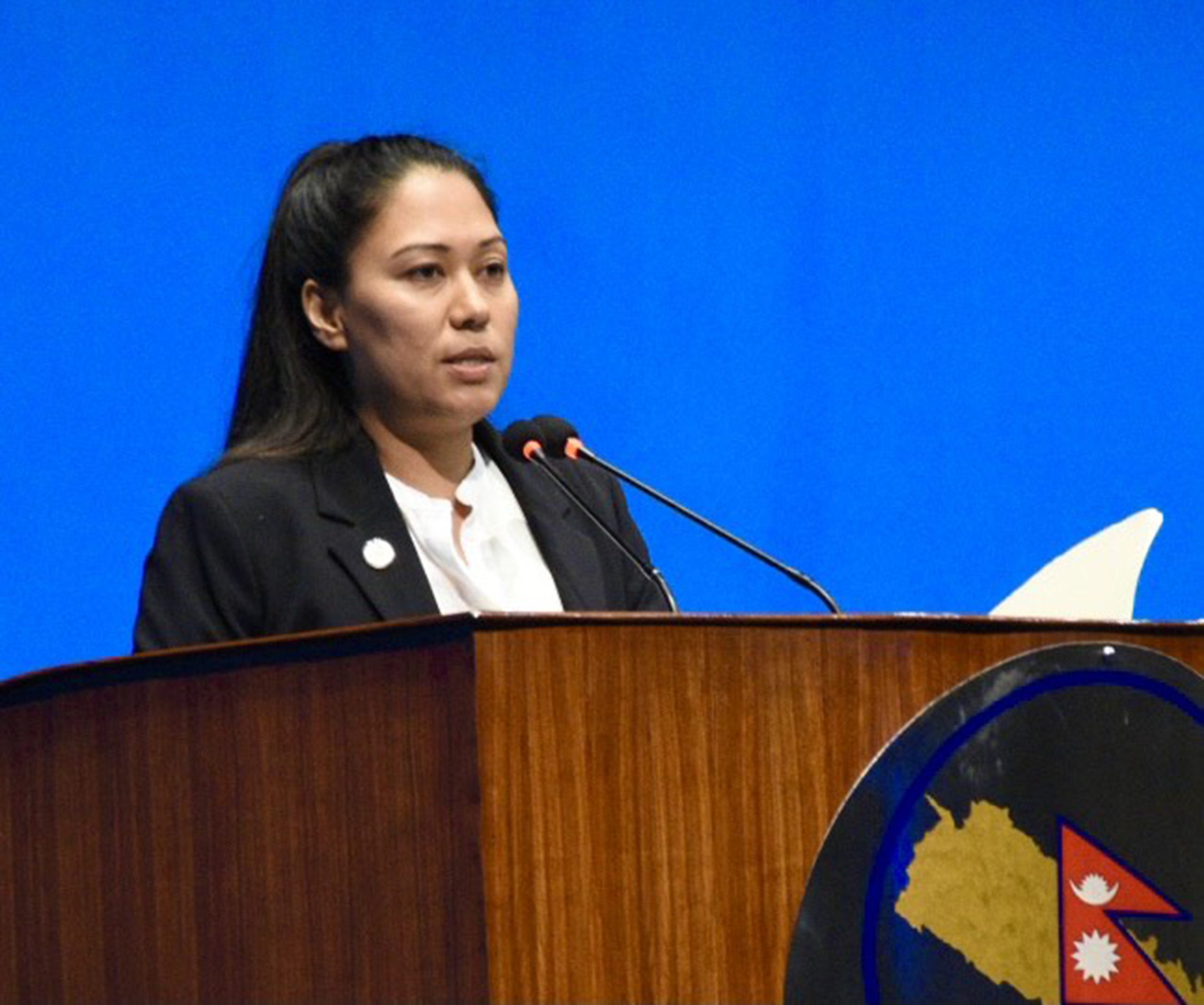
Sumana Shrestha
Kathmandu, Feb 1: Excessive political partisanship has infiltrated every sector of Nepal, undermining individuals right to live freely. Why cant a Nepali simply live as a Nepali? Despite the formulation of excellent laws, partisanship has consistently obstructed their implementation. Laws alone are not enough; we need the right individuals to enforce them, but unfortunately, these individuals are often confined to political parties.
Reflecting on my two years in politics, I have realized that it is impossible to work professionally and independently in the current environment. The country operates not under the rule of law but under the whims of party interests. In our multiparty political system, the peoples interests should take precedence, but partisan politics has suppressed public concerns, grievances, and voices. Even peoples representatives have failed to truly represent the people and act as common representatives for all.
The same issue persists in implementing federalism. The required environment for its execution is lacking because political parties dominate the process. Until we eradicate excessive politicization, federalism cannot be effectively implemented.
Four-Month Tenure as Education Minister
As Education Minister, I think I fulfilled my responsibilities with integrity and tried to reform the work culture within the ministry. I operated without any entourage of party supporters in the ministry. Instead, I engaged openly with ministry staff to address issues collectively.
The real problem lies in our bureaucratic system, which fears political parties. Our politically divided bureaucracy hampers law enforcement. We have not allowed officials to work independently. Many employees operate under the shadow of party allegiance. For instance, implementing Section 16 of the Education Act, which prohibits political party members from holding executive positions as teachers, was an immense challenge for me.
Misleading narratives abound in the country, particularly in the education sector. Many blame the Education Act for various issues. However, several matters can be addressed through regulations rather than amending the Act itself. Pointing fingers at the Act is merely a way of shirking responsibility.
You don’t have to be in government to serve
Another misconception propagated by representatives is that meaningful work is only possible from within the government. Currently, the Rastriya Swatantra Party is in the opposition. Our role is to ensure that the laws passed by the House are being implemented effectively. If there are issues, I can propose private bills or initiate discussions on legal reforms.
As a representative, it is my duty to listen to the people’s voices. Recently, I traveled from Birgunj to Kathmandu to hear citizens’ concerns, visiting their homes and communities. It is the representative’s job to raise these issues in Parliament and hold the government accountable. Representatives must not solely cater to their party members but should aim to be common representatives of all people.
Citizens often complain about having to resort to personal connections for even minor tasks. In Birgunj, for instance, locals shared their fear of customs authorities, describing it as a constant source of distress.
Development discussions in Parliament often focus solely on physical infrastructure. However, during my interactions, I realized that many issues are rooted in political interference.
In Bahudarmai Municipality, Parsa, teachers have gone unpaid for seven months due to disputes between the mayor and the chief administrative officer. This has disrupted education for students. Despite repeated requests from local representatives, federal authorities have not reassigned administrative officers. Other challenges include resource allocation and distribution, often influenced by political interests.
Political interests overshadow citizens’ welfare
As long as partisan interests dominate, working for the public good will remain challenging. Excessive political influence prevents genuine public grievances from surfacing. Moreover, political parties have raised public expectations unrealistically high, promising free services without sufficient resources. This trend of making unrealistic promises must stop.
Tourist destinations lack encouraging visitor numbers, with places like Sauraha experiencing a slump. Construction contractors have not been paid, and while some issues require budgetary solutions, many only need policy-level fixes.
As a representative, I am eager to support the government’s good initiatives. Through parliamentary committees and the House, I will continue to highlight public issues and difficulties faced by local governments. While immediate resolutions may not always be possible, I remain committed to constant advocacy.
Representatives must be studious
Parliamentarians must be studious—not just through books but by engaging with diverse individuals, experiences, and observations. Problem-solving requires research. For example, everyone says corruption must be eradicated, but it cannot be done merely by discussing it. Legislators must present problems based on facts and data and propose solutions.
Corruption cannot be eliminated solely through laws; it requires a cultural shift. Good governance is also about fostering ethical behavior, how we act when no one is watching. We must move beyond party boundaries and work for the greater good.
Challenges in amending the constitution
Constitutional amendments are often portrayed as insurmountable hurdles. While both Houses require a two-thirds majority for amendments, the current government alliance only holds such a majority in the House of Representatives, not in the National Assembly. However, I have not seen any studies indicating that the constitution is a barrier to addressing pressing national issues.
Federalism’s essence lies in service delivery, but provinces and local levels lack adequate resources to fulfill their responsibilities. Many responsibilities have been delegated to local governments without capacity building. Without resources, how can they function effectively? Public frustration with federalism often reflects anger towards political leadership rather than the system itself.
Senior party leaders contribute to misleading narratives, branding dissenting voices as foreign agents or conspirators. Instead of explaining how to implement federalism, they resort to such rhetoric.
Commitment to ethical representation
As a legislator, I am committed to honesty and ethical conduct. I reject the notion that opposition roles must involve blanket criticism. Our party stands for serving citizens, not opposing for the sake of opposition. I oppose flawed practices, not parties.
I assess government ordinances based on their merits and engage in constructive debate. My responsibility to the public is clear: I will support legislative processes and work for the collective welfare of all communities. (Lawmaker Sumana was talking with RSS reporter Sirjana Rai) #sumana #house #rsp





